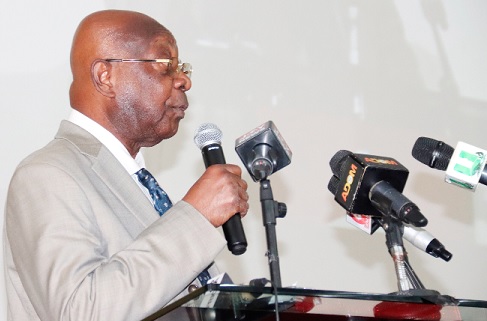
Consider consultant positions in regional hospitals — Prof. Adanu
The Rector of the Ghana College of Physicians and Surgeons, Professor Richard M. K. Adanu, has proposed that the country should consider providing consultant positions in the regional hospitals for retired senior medical specialists to provide their services on contract.
Advertisement
He said his proposal could be a stop gap measure to provide the needed specialist training for practising doctors to sharpen their skills and knowledge of their various disciplines as well as improve healthcare delivery over a wide geographical zone.
specialists
“If we give these retired specialists consultants positions, their presence alone at the hospitals would improve health care not just in that hospital but over a whole geographic zone and they would serve as major trainers for postgraduate programmes,” he said.
Prof. Adanu said this in Accra last Thursday, at the first public lecture to mark the 20th anniversary launch of the Ghana College of Physicians and Surgeons on the theme ‘Two decades of postgraduate medical training in Ghana’.
His lecture traced the history of the setting up of the college, the success stories, the challenges confronting specialists medical training in Ghana now and proffered solutions to them.
Well equipped hospitals
He also advocated the setting up of two well-equipped hospitals with the capacity of the Korle Bu Teaching Hospital and Komfo Anokye Teaching Hospital in each of the 16 regions of the country.
Additionally, he said, each region needed to have good infrastructure such as roads, schools, recreational facilties and variety of shops, which, he said, could entice medical trainers to take up postings in the regions and provide the needed training for doctors to become specialists and senior specialists.
“If we succeed in this stop gap measure and successfully decentralise the training of members and fellows, we will have more doctors staying outside the two big regions and offering valuable specialist services after their training,” he said.
Veering into the political arena with his lecture, Prof. Adanu said the government’s plan of building well-equipped hospitals all over the country, known as Agenda 111, should be adopted as a national plan instead of it being the plan of a political party.
“We have members and fellows of the college who belong to the two major political parties in the country.
These members and fellows must make sure that the things that we need for specialist training, which include well-equipped hospitals, should be written in the same words in each party’s manifesto so that the political support for postgraduate medical training will not be affected by the results of an election.
We cannot address our challenges without political and governmental support so they must support the doctors irrespective of whichever side they are on,” he said.
renowned
Prof. Adanu, who is renowned for his specialisation in obstetrics and gynaecology, urged medical trainees to explore the private sector as the college worked to decentralised postgraduate medical training in the country in order that the challenges of overcrowding in medical training centres were addressed.
His lecture also touched on technology, pointing out that the college must identify aspects of its training that could be delivered virtually using information communication technology (ICT) which could be accessed by all trainees all over the country.
Funding medical training
Launching the anniversary, the Minister of Health, Kwaku Agyeman-Manu, announced that the Ministry, working together with the college, had secured cabinet’s approval of policies that would ensure that doctors start postgraduate training earlier than had been happening and that the rate of production of fellows by the college should be increased.
Touching on members and fellows produced by the college, Mr Agyeman-Manu said they were very crucial to the success of the country’s healthcare system.
There were short addresses from the chairman for the occasion, Prof. Nana S.K.B. Asante, the Council Chairman, Prof. Yaw Adu-Gyamfi, and Prof. Samuel Debrah, who, together with the earlier speakers, paid glowing tribute to all who worked hard to get the college established.



